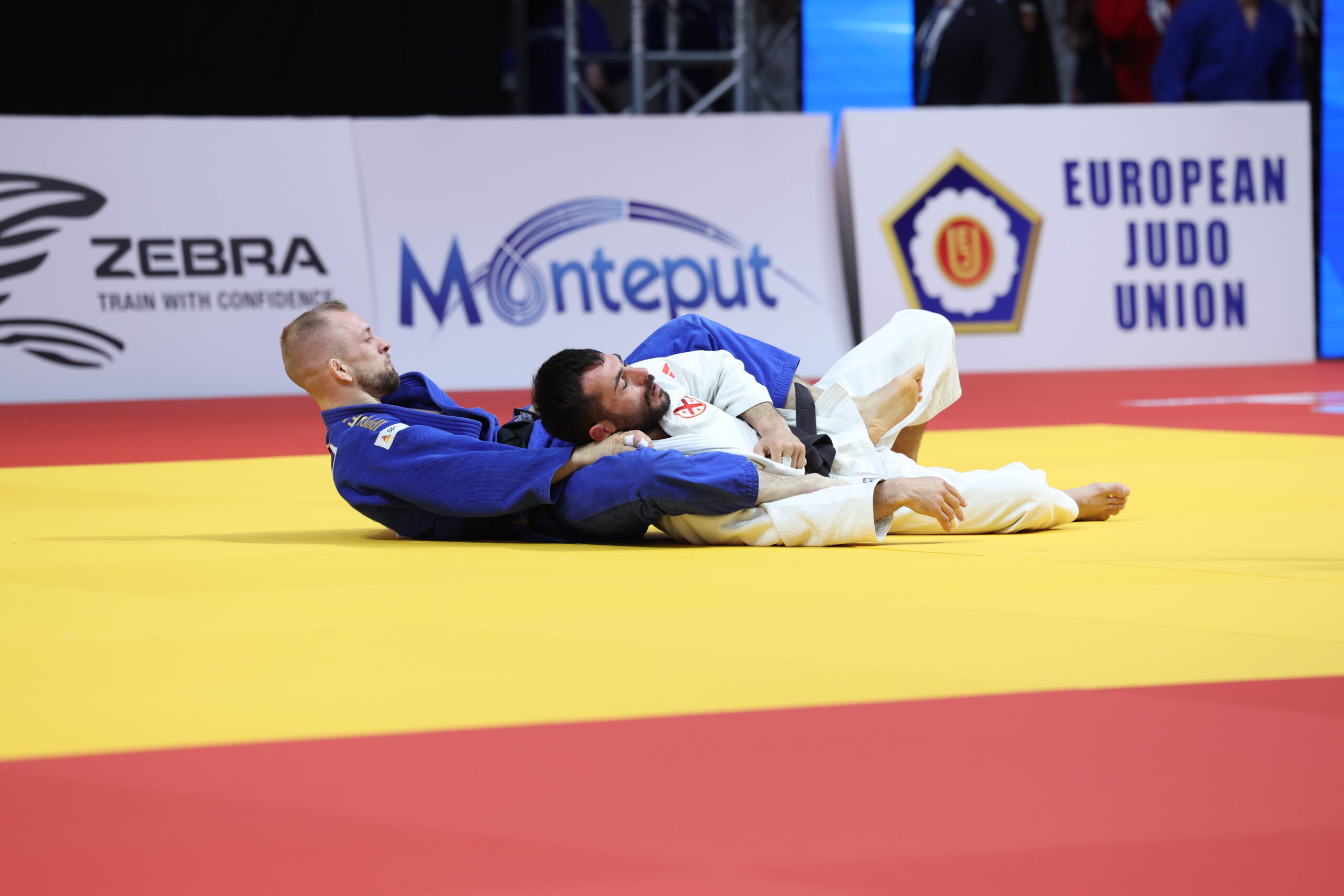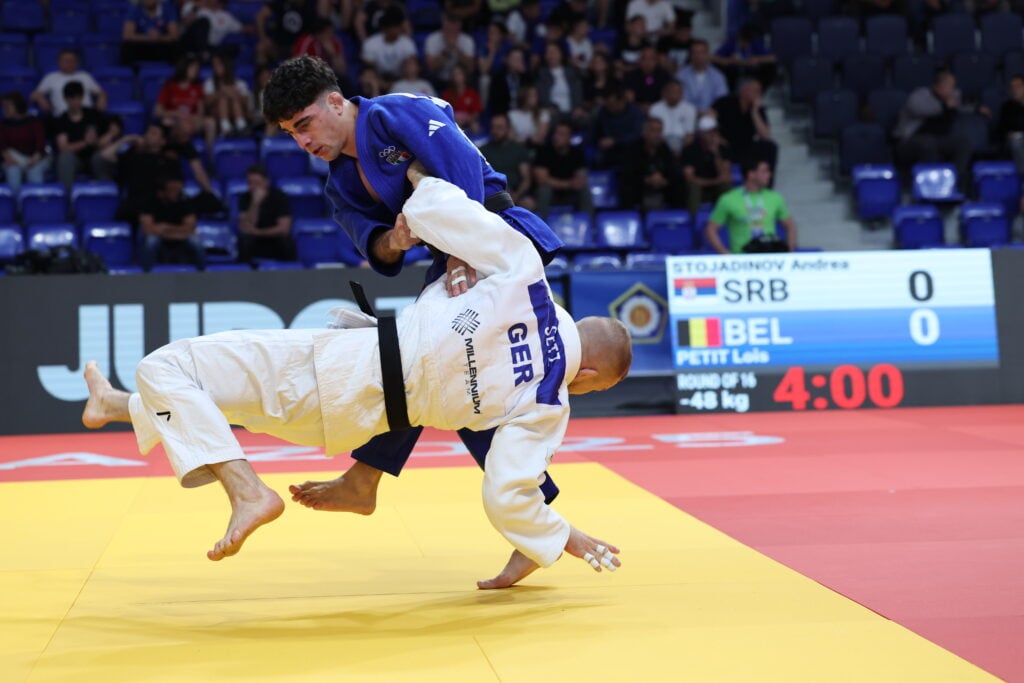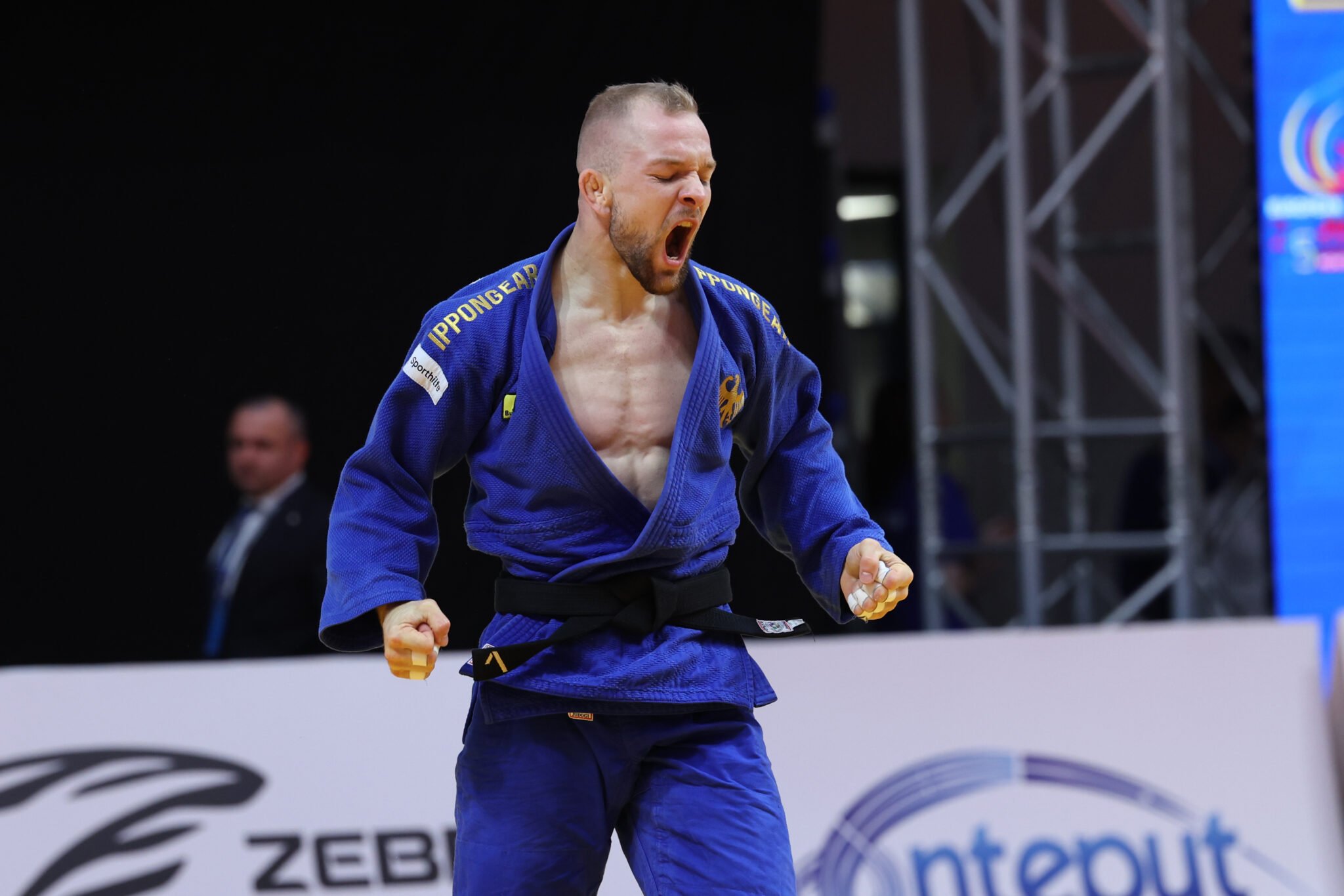By the time German judoka Martin Setz stepped onto the tatami at the 2025 European Judo Championships, few outside his inner circle would have pegged him as a contender. A seasoned name on the IJF World Tour, Setz had flirted with podium finishes but never quite cracked through. This time, the draw was merciless, or so it seemed on paper. His first opponent was Vazha Margvalashvili of Georgia, a former European Champion and Olympic silver medallist.
However, judo isn’t fought on paper and midway through the contest, Setz secured a waza-ari score and then showcased his newly sharpened ne-waza skills to seal a win that was anything but a fluke. It was a masterclass in grit and preparation. “I had a really good preparation and we did a lot of training camps. I didn’t just want to take part. I wanted to really fight for a medal, so that was in my mind.“

From the outset, he fought like it. His victory over Margvalashvili wasn’t opportunistic, it was deliberate, powerful and technically sound. “I knew it will be a hard fight, but yes, I was fighting for a win and I know I can beat really good guys becuase I proved it in the training a lot of times… maybe today was the day to prove that here at the Europeans.”
Setz spoke with a kind of earnest clarity, no bravado, just belief. He credited part of his evolution to a strategic shift toward ne-waza, something he had consciously decided to work on. “My favourite was always tachi-waza, yeah for sure, but since one year I focus more on ne-waza… I am really really happy that it made the score against such a good guy today on this level. So this was a big relief.”
After the emotional high of toppling one of Europe’s elite, the next round brought disappointment. Facing Italy’s Elios Manzi, Setz fell short. “I told myself that this is not the end after winning against a good guy… It was just a small mistake and then hard to get also a score against Manzi.” There came a pause before Setz continued, “I am sad because I know I can do more but this is maybe the motivation for the next competitions.”

Despite the early exit, the German team was far from discouraged. Marko Spittka, the men’s team national head coach, saw the bigger picture. “Martin was really good prepared and I was really happy about the situation, the tactic was perfect and he feels also strong. That is why he can beat also a former European champion.”
Spittka was candid about the team’s past struggles but optimistic about the current trajectory, “Before was everybody against everybody. Now everybody is working together from club coaches onwards. Now we talk don’t talk about ‘he lost and that was bad,’ we talk about solutions and the next steps. That is totally different and it will show in results step by step.”
Setz, now 30, may be considered a near veteran but in the eyes of his coaches, he is still blooming. Spittka added, “He is only the age of 30 on paper, inside he is younger and the body is also strong… I hope for him for the future that he can take one step more. He has what it takes to do so.”
As for Setz, the hunger hasn’t waned. “Despite a bittersweet day, I will continue focusing on my next goal which is the World Championships. I want to have some success there.” In a sport where triumph often hinges on milliseconds and millimeters, Setz’s moment of brilliance in Podgorica may not have ended in a medal but it did something arguably more important: it made a statement. Quietly but unmistakably, he reminded his surroundings that he is not done yet, quite the opposite.
Author: Szandra Szogedi




